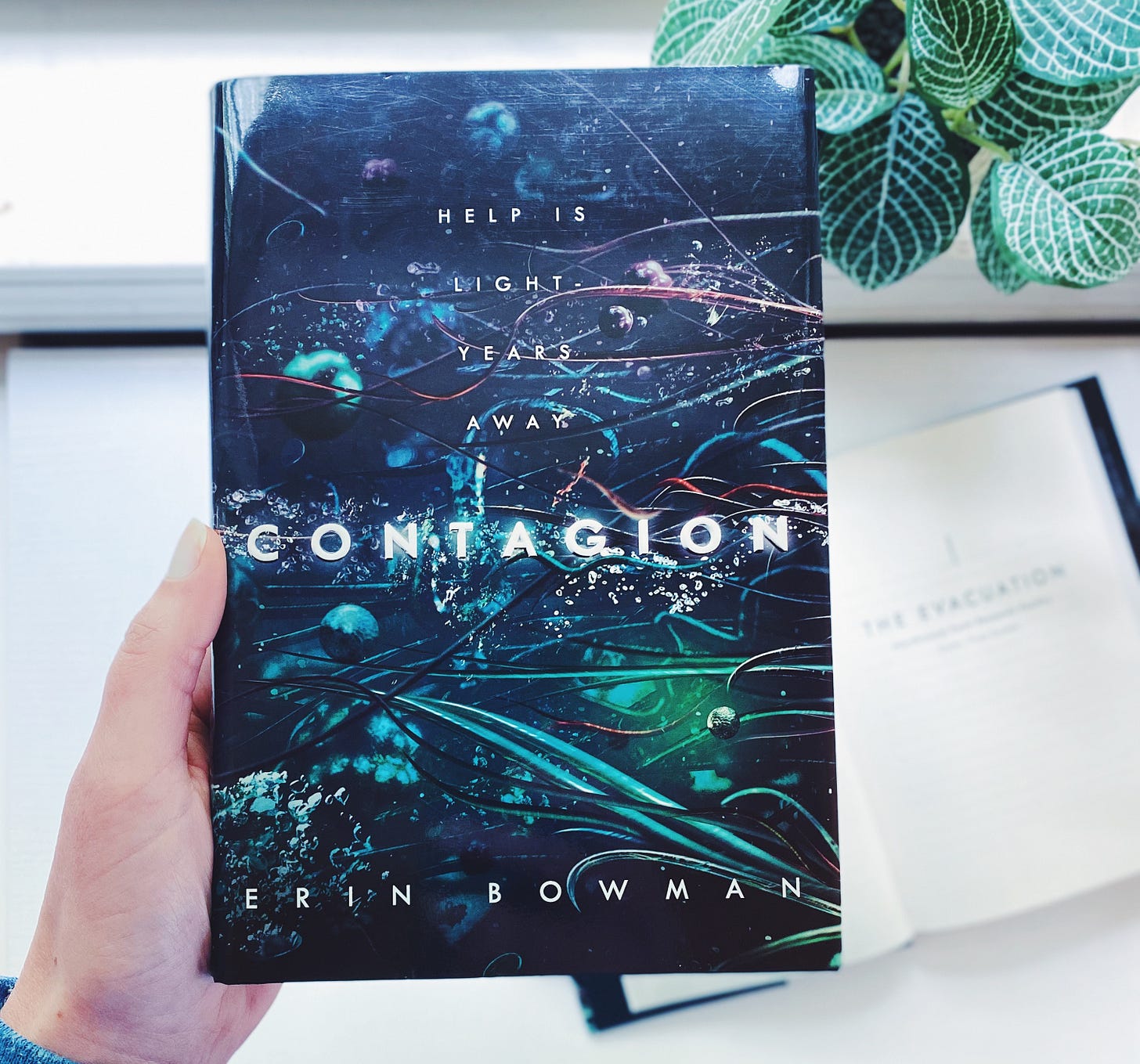Deleted Scene: CONTAGION's original opening
A look at how the first scene of my sci-fi horror novel evolved from first draft
In honor of Contagion’s audiobook being on sale in a variety of places (iBooks, libro.fm, Kobo)1, I thought it would be fun to share a deleted scene from the novel.
“Deleted scene” isn’t quite the right term, because the scene we’re going to look at today still exists in the final book. But this scene evolved so much during drafting and revisions that it’…
Keep reading with a 7-day free trial
Subscribe to From the Desk of Erin Bowman to keep reading this post and get 7 days of free access to the full post archives.




